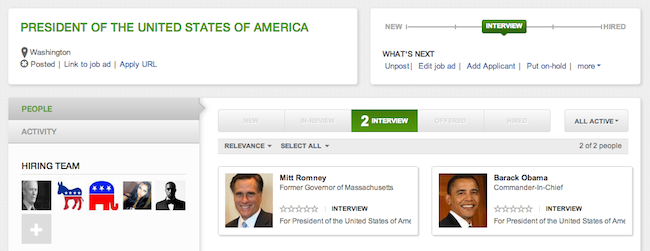Let’s pose a scenario. An applicant whom you had some interest in walks through the door and is sitting in your lobby. You had never seen the person before. You peek out in the lobby to look at the person. They look “different” than you expected them to look. They are plainer, heavier, a different color, or even a different gender than you expected. Was it illegal for you to peek into the lobby? Of course not, and it is not illegal to look at someone’s picture in a profile today.
What you do with the information
If the candidate doesn’t look as “expected,” what would you do? Would you then make an excuse not to interview them, despite the fact that their qualifications looked appropriate to the job? Or would you spend time discovering if their ability to do the job was what you are looking for in your company? If you chose the former then you will have many potential problems. If you do the latter you are in a much safer position. The key issue in looking at pictures is what you do with the information, just as if you were to find out in a profile that someone was a member of a particular religion or a particular age. If you make your hiring decisions based on that information and not the person’s ability to do the job then you are breaking the law, not only in the US but in many other nations as well.
Do people make decisions in hiring on the basis of someone’s appearance? They certainly have! There is a long history of discrimination on that basis. Profile pictures on sites such as LinkedIn, however, are not the first time pictures have been used. In days past, candidates would send their pictures along with the resumes or even printed into the resume. Job counselors would advise attractive candidates to submit a picture because the psychology of physical attraction would work in their favor.

Hallmark of professional managers
One of the hallmarks of professional managers and recruiters is understanding that biases may exist and realizing that these biases must be overcome in order to find the best candidate for a job. With few exceptions a person’s physical appearance is not relevant to the performance of their job. Yes, there are standards of appearance, such as how someone dresses on the job, that you can adhere to, but you don’t know if the person can abide by those until you have interviewed them. Professional managers will use a picture in order to recognize a candidate to welcome them at the first greeting.
 Be honest with yourself. Take a look at all the people working around you or in your circle of friends or even your family. Would you hire them today if they were qualified for the job? Or would your reject them based on having seen a picture? It is not illegal to look at a picture. It is illegal to make your hiring decision solely on the basis of that picture.
Be honest with yourself. Take a look at all the people working around you or in your circle of friends or even your family. Would you hire them today if they were qualified for the job? Or would your reject them based on having seen a picture? It is not illegal to look at a picture. It is illegal to make your hiring decision solely on the basis of that picture.
Mike Haberman is the HR Compliance Guy. He is a HR consultant and Partner at OmegaHRSolutions.
















